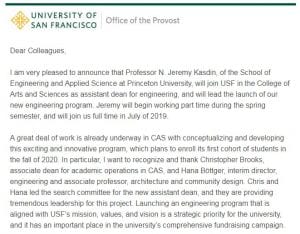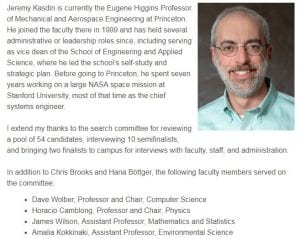…and we’re one click closer to the launch date of Fall 2020…
The main focus this spring semester will be to finalize and start writing syllabi for the Summer Zero and first semester courses, to get those approved in time for their offering. Summer Zero will be a multi-week bonding experience for the entering class of students, aimed at preparation for success in college, a little bit of math, coding and writing skill-building, and getting to know SF and USF. We want students to experience engineering problem-solving from day 1, so this experience, as well as key courses in the first and second semester, will be project-based.
Also this spring we’ll be working with the Admissions office to set admissions criteria, and rolling out an informative website for our prospective student families as well as the current USF community.


